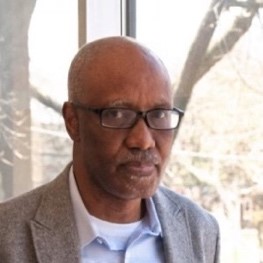Location: Multipurpose Room (PCN 2012), Ponderosa Commons North
Lunch is served from 12:30 to 1:30pm. All are invited.
Please RSVP if you’re joining us for lunch.
In this two-session dialogue with Visiting Scholars, sponsored by LLED and Language Sciences, we expand our analytical lens and engage with diverse epistemologies, tools, and methods in language research. How can writing stories and using digital tools to analyze data and represent findings contribute to reflexive practice? What constitutes a decolonial sociolinguistics and how can it shape a framing of Southern epistemologies that enables broader ways of thinking about language? Join us as we engage in conversation with two international scholars, Dr. Sal Consoli and Dr. Sinfree Makoni, who are reshaping the field of language and education.
Narrative Analysis in Language Education Research: a Reflexive Perspective through MAXQDA
Dr. Sal Consoli, University of Edinburgh
Thursday, March 2023 | 11:00 – 12:30 PM | PCN 2012

Language Research, Southern Epistemologies, and Decoloniality: An Evolving Agenda
Dr. Sinfree Makoni, Penn State University
Thursday, March 2023 | 1:30 – 3:00 PM | PCN 2012

Narrative Analysis in Language Education Research: a Reflexive Perspective through MAXQDA
Dr. Sal Consoli, University of Edinburgh
Abstract:
Narrative inquiry is now a well-established methodological approach in applied linguistics, especially within the domain of language learning and teaching. As a result, a growing body of literature has grappled with several epistemological and methodological issues related to narrative perspectives in the field (e.g., Barkhuizen, 2013; Bell, 2002, 2011; Benson, 2018). In this talk, I will extend the epistemological and methodological debates which have characterised narrative inquiry in language education over the past decade. In particular, I will put the spotlight on a specific method, narrative analysis, i.e., the process of writing stories as an approach to data analysis and representation of research findings. To do so, I will unpack my experience of doing narrative analysis through MAXQDA, a Computer Assisted Qualitative Data Analysis (CAQDAS) Software which may help researchers manage a large dataset. Crucially, the use of this software does not only facilitate systematic narrative analysis whilst dealing with a large amount of data from several sources, but also supports researchers’ engagement with methodological reflexivity. Ultimately, the practice of reflexivity is presented as an essential hallmark of sound and meaningful narrative analysis. The steps and processes I will discuss in this talk will therefore legitimize further the rigour of this narrative methodology.
Bio:
Dr Consoli has published in various international peer-reviewed journals, such as TESOL Quarterly, System, and the Journal of English for Academic Purposes. He has developed the concept of life capital which offers a lens to account for (language) learners’ and teachers’ life stories and understand how these interact with learning and teaching experiences. Dr Consoli has co-edited a Special Issue on Narrative Inquiry for the journal System and one on Research Engagement for the journal Educational Action Research. He is also co-editor of Reflexivity in Applied Linguistics (Routledge, 2023).
Language Research, Southern Epistemologies, and Decoloniality: An Evolving Agenda
Dr. Sinfree Makoni, Penn State University
Abstract:
What is involved in language, who constructs it, where it derives from, and how it is (re)formed have long been questions in the fields of socio- and applied linguistics. And yet, the dominant epistemologies in the framing of languages is drawn from Western and/or Northern theoretical and epistemological frameworks.
This, we argue, is immensely problematic, as what is absent in this Western/Northern focus are the linguistic practices and language-centered frameworks of knowledges that have existed and continue to emerge outside Euro-America, namely the Global South/s (Makoni et al., 2022). The objective of this presentation is to rectify philosophically this situation by framing language studies through Theory of the South (Comaroff & Comaroff ,2012) and Southern Theory (Connell, 2007, 2019) and to draw on Epistemologies of the South by (de Sousa Santos & Meneses, 2020), extended through L. Gordon’s (2021) ‘Shifting the Geography of Reason’ and J. Gordon’s (2014) Creolizing Political Theory expanded through decolonial sociolinguistics.
In this presentation, we address the following three questions that emerge in language research when framed through Southern and Southernizing epistemologies, waterscape epistemologies, and decolonial sociolinguistics.
1. What does an interactional sociolinguistics from the Global Souths, predicated on the African axioms of opaqueness, obscurity, ambiguity, long windedness, and circuitousness, look like (Ameka & Terkourafi, 2019)?
What does sociolinguistics from the Global Souths look like when we take into consideration the heterogeneity and complexity of the urban centers (Amin & Thrift, 2017).
2. How do we go beyond a study of languages, which is human centered, by challenging the human/nonhuman distinction that forms the basis of modern linguistics and is one of the devastating consequences of modernity?
3. How does water shape our conceptual images of language practices? We argue that
“waterscape” or “wet” epistemology, bottled water, rain and floods and “liquid materiality” (Peters & Steinberg, 2019) mark a dramatic shift from perceiving language practices as a single rootedness of a monolingual native speaker to a mobile multilingual migrant (Guildin, 2020).
We conclude the presentation by illustrating how living in a pandemic has had an impact on our theorization of language practices in the Global Souths by creating “new temporalities, blurring the boundary between normalcy and emergency” (Deumert & Makoni, 2023,), and we outline what a decolonial perspective of sociolinguistics looks like and how it shapes our framing of Southern epistemologies in Language research. We conclude the presentation by analyzing the complex and labile relationships between decolonial and southernizing sociolinguistics (Antia & Makoni 2022)
Bio:
Dr. Makoni’s most recent co-edited books with Routledge include Innovations and Challenges to Applied Linguistics from the Global South; Integrational Linguistics and Philosophy of Language in the Global South; The Languaging of Higher Education in the Global South; and Language in the Global South. His co-edited Multilingual Matters publications include Decolonial Voices, Language and Race, and From Decolonial Linguistics to Southern Sociolinguistics. He is also co-editor of the new Multilingual Matters book series Global Forum on Southern Epistemologies. He currently serves as co-editor of the Journal of Applied Linguistics.
We acknowledge that the UBC Vancouver campus is situated within the traditional, ancestral and unceded territory of the xʷməθkʷəy̓əm (Musqueam).